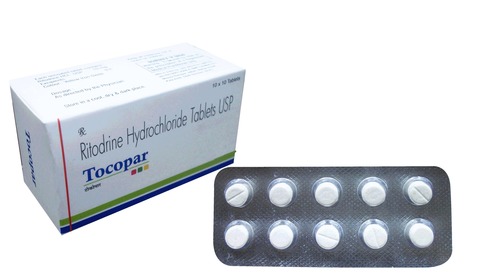
Ritodrine is a tocolytic drug used to stop premature labor.
Ritodrine hydrochloride
Ritodrine hydrochloride; 23239-51-2; RITODRINE HCL; Ritodrine; Ritodrinehydrochloride
Miolene, Ristore, Ritodine, Ritolan, Ritopar-UR, Ritrod, Tocopar, Uterelax, Utgard, Utodin, Utowin, Yutodian, Yutopar
4-(2-{[(1R,2S)-1-hydroxy-1-(4-hydroxyphenyl)propan-2-yl]amino}ethyl)phenol
NA
Beta-2 adrenergic receptors are located at sympathetic neuroeffector junctions of many organs, including uterus. Ritodrine is beta-2 adrenergic agonist.
NA
For the treatment and prophylaxis of premature labour
Tachycardia, palpitation, headache, nervousness, anxiety, nausea, vomiting.
Cardiac disease, cord compression, eclampsia and severe preeclampsia, intrauterine foetal death, placenta praevia, threatened miscarriage and antepartum haemorrhage.
Normally handled and stored by health care providers.
287.3535
C17H21NO3
26652-09-5